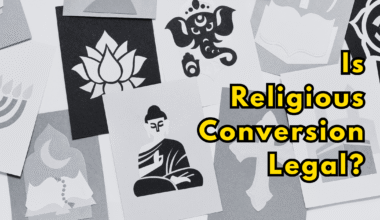In India, people run after government jobs, with most eyes on Central Government. The reason? Not just the name and fame but the perks which come along with a government job. One of such perks is that if you being a government servant or an Army Person died untimely, or had to retire early due to medical issues, someone in your family gets a job. This is termed as Appointment on Compassionate Grounds. Let’s have a look at who is eligible for compassionate appointment in Central Government.
Applicability of Compassionate Grounds
As per the Scheme for Compassionate Appointment under Central Government, it is applicable to the dependent family member of a Government Employee who:
- Died while in service – natural death or death by suicide;
- Retired on medical grounds (As per Rule 2 of CCS (Medical Examination) Rules of 1957 or CCS Regulations before the age of 55 years or 57 years for Group ‘D’ Govt. servants);
- Retired on medical grounds (As per Rule 38 of CCS (Pension) Rules of 1972 or CCS Regulations before the age of 55 years or 57 years for Group ‘D’ Govt. servants);
Or a dependent family member of a member of the Armed Forces who:
- Died during service;
- Killed in action;
- Medically boarded out or unfit for civil employment.
Who can get Compassionate Appointment in Central Government?
As per the Scheme for Compassionate Appointment under Central Government published by the Ministry of Personnel, Public Grievance and Pensions, Government of India, the following people can be “dependent family members”:
- Spouse;
- Son (including adopted son);
- daughter (including adopted daughter); or
- brother or sister in the case of unmarried Government servant; or
- member of the Armed Forces referred to.
As clarified, the said member proposed for compassionate appointment should wholly dependent on the said Government servant/Armed Forces member. Also, for anyone to be considered for compassionate appointment in Central Government, there is provision for relaxation of upper age. However, the minimum age for compassionate grounds is 18 years.
There are provisions for educational qualifications for compassionate appointment in Central Government. The government may consider the candidates who do not immediately meet the minimum educational standards, by engaging them as trainees given regular pay bands and grade pay only after acquiring minimum qualification prescribed under the recruitment rules.
FAQs on Eligibility for Compassionate Appointment
Q. Is married son eligible for compassionate appointment?
Answer – Yes, as per the Scheme for Compassionate Appointment in Central Government, a son, regardless of his marital status, is eligible. In fact, the Chhattisgarh High Court in Nagendra Kumar Yadav v. Food Corporation of India clarified that the Compassionate Ground policy does not prohibit a married son from appointment. The Court observed that “It cannot be assumed without examining the facts and without taking into consideration the attendant circumstances that married son is not dependent on the Government servant.” Even the Supreme Court refused to interfere with this order by Chhattisgarh HC.
Q. Can an adopted son claim a compassionate appointment?
Answer- The law does not discriminate between a biological child and a legally adopted one. Even for the purpose of appointment on compassionate grounds, adoption does not affect a child’s right to be appointed in Central Government. The Allahabad High Court in Vikas Jauhari v. State of UP opined that “an adopted son is as good the real son”. The Court only sought examination of validity of adoption in such cases.
Q. Is a second wife eligible for a compassionate appointment?
Answer- The eligibility of a second wife is in question because of bigamy laws in India which restrict people into monogamy – only one married spouse alive. However, different people have different circumstances. In Kirandeep Kaur v. PSPCL, the Punjab and Haryana High Court dealt with a matter where the deceased husband nominated his second wife. However, the Department rejected her compassionate appointment since the first marriage was dissolved through Panchayati compromise, and thus, the second marriage was against the law. The Court referred to the Supreme Court judgment in Vidhyadhari (2008) and allowed compassionate appointment.
In another judgment of Mukesh Kumar v. Union of India, the Supreme Court allowed compassionate appointment in Central Government for a child born to the second wife of the deceased.
Q. Can a married daughter get a job on compassionate ground?
Answer- For the purpose of compassionate appointment in Central Government, a dependent family member qualifies. A daughter may qualify for appointment, only after proving that she was dependent on government servant parent or Army parent even after marriage. The Orissa High Court in Seemarani Pandab v. State of Odisha has observed that “The dismissal of the candidacy of a married daughter for compassionate appointment under the Rehabilitation Assistance Scheme is not justifiable for it is plainly arbitrary and violative of constitutional guarantees, as envisaged in Articles 14, 15, and 16(2) of the Constitution of India.”
Q. Is a divorced daughter eligible for a compassionate appointment?
Answer- Since appointment on compassionate grounds is directly subject to the dependency of family members, the fact that whether divorced daughter was dependent upon the govt. servant/Army personnel holds importance. In Director Of Treasuries In Karnataka v. V. Somyashree, the Supreme Court has discussed that divorced daughter may be considered for compassionate appointment, provided that she was divorced and dependent at the time when death or relevant incident took place with the government servant/Army person.
Q. Is a brother eligible for a compassionate appointment?
Answer- The rules for appointment on compassionate grounds clarifies that a brother or sister may be considered if the said public servant or Army personnel was unmarried. The said stance has been supported by various Courts including the Rajasthan High Court in Ankit Gaur v. State.
Conclusion
As seen through the scheme and various case laws covered for frequently asked questions on compassionate appointment, dependent family members are sought to be protected. Courts have reiterated that the answer to who is eligible for compassionate appointment in Central Government lies with who among the eligible relatives are dependents.








